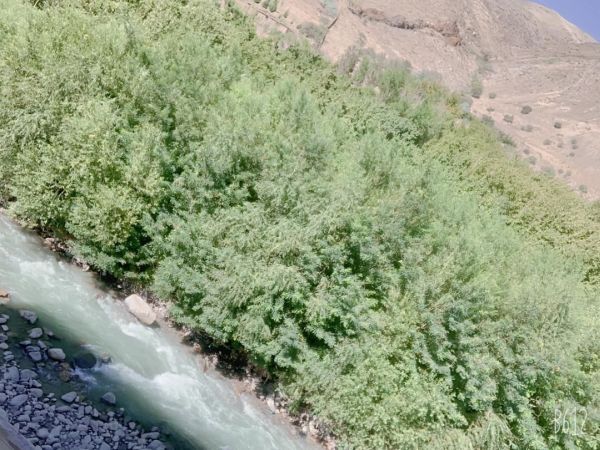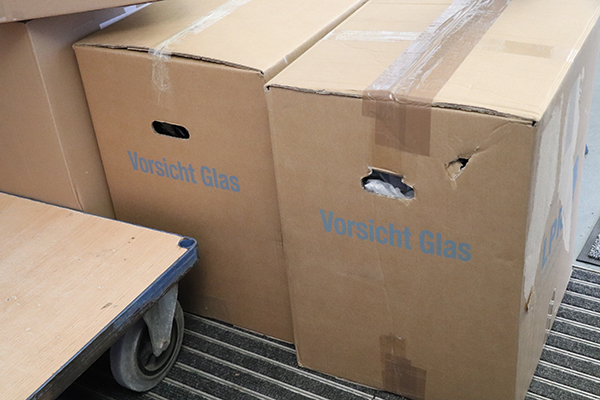By Ute Kaiser
Afghans who have lived in Germany for years are very worried. Also, in the District of Tübingen. They experience the situation in the country at the Hindu Kush as chaotic. They see Afghanistan on the brink of economic collapse. And they hear from their relatives or read in the media that most people are impoverished and many feel threatened.
“In Afghanistan, there is no freedom, no security, no work, and no freedom of speech,” says M (all names are known to the editors) when describing the situation in the country. In addition, he says, money is worth nothing and people can’t buy food. Therefore, a young unemployed neighbor grew a beard and joined the Taliban, reports the man from Tübingen.
An acquaintance of M’s family has not worked as a civil servant since the Taliban seized power in mid-August. Many countries have stopped financial aid to Afghanistan, and Afghan government assets in the United States have been frozen. Many government employees no longer get paid. The man now sells apples on the street. The Afghani national currency is worth less and less. Out of sheer necessity, some unemployed people become criminals. If he is caught, says M, his hand will be amputated – according to the strict interpretation of the Sharia law.
It hurts F to see “how my country is bleeding.” The Rottenburg woman is particularly shocked by the situation of the women: “They lose everything.” Her aunt in Kabul no longer dares to leave the house since the Taliban took charge. Women who did not wear headscarves in the past now put on burqas for their own protection. The Taliban are denying girls and women education and jobs. Young women have reportedly been kidnapped and raped, according to F.
“Taliban means: fear, terror, killing,” says M, from Reutlingen, at an event organized by the “Move on” association in Tübingen. His best friend was murdered in front of his house. M only managed to leave Kabul after several attempts.
At the end of 2021, a few former female judges were able to flee from Afghanistan to Germany. They feared for their lives. The Taliban had released many criminals from prison. The female judges had sentenced some of them. These criminals threatened the judges and their families with revenge. This was reported by the jurists in the news program “Tagesschau”.
Another professional group is also endangered: journalists and with them the freedom of the press. Everyone fears “that they will be persecuted by the Taliban,” the multiple award-winning journalist W told the human rights organization Reporters Without Borders. Some journalists have been murdered, he said, “It’s scary.” There is virtually no free media left in Afghanistan, he said. Journalists censor themselves. The reason: “The Taliban are unpredictable,” says W. He now lives in Germany.
Like M from Rottenburg, many Afghans fear for their families. The Taliban killed his stepfather. His mother has to wear a burqa against her will. M belongs to the (predominantly Shiite) Hazara minority. The Taliban regard them as infidels and second-class citizens. A from Mössingen is also Hazara. The Taliban have also threatened his relatives in Afghanistan. But A’s application to let them come to Germany was rejected – as was that of M and his family.
Local personnel who have worked for the German armed forces, for example, and their families are particularly at risk. There are 25.000 promises of admission to Germany, according to figures from the German Foreign Ministry. Some 5.000 people are already in Germany, and 5.000 are said to be on their way. But some 15.000 in need of protection are still waiting for their dangerous situation to end. Annalena Baerbock, Germany’s new foreign minister, said shortly before Christmas 2021: “We have a responsibility not to abandon these people, especially girls and women.”
Afghanistan features less often in German media than it did immediately after the Taliban seized power. Nevertheless, there are frightening reports again and again. The Welthungerhilfe (World
Hunger Help) expects that more than 22 million of the approximately 40 million people in Afghanistan will not have enough to eat this winter. This need is also due to the extreme drought that has been going on for two years, especially in the west of the country.
Time and again, the media also report on attacks by the radical Islamist “Islamic State” with many deaths. F follows the news from and about Afghanistan closely. “Our weapon is the Internet,” she says. To support opponents of the Taliban regime, she posts a lot of information.
How do F and M see the future of Afghanistan? M believes that this year or next, the Taliban’s rule will end: “It’s not a stable regime.” F, on the other hand, is pessimistic: “I have no hope at all for Afghanistan.” The people there just want to live in peace and security. But she expects neither peace nor security for the country, where violence, armed conflict and war have existed for more than 40 years.
tun22010403
Eine Landschaft in Afghanistan. Foto: Maryam Momand.




